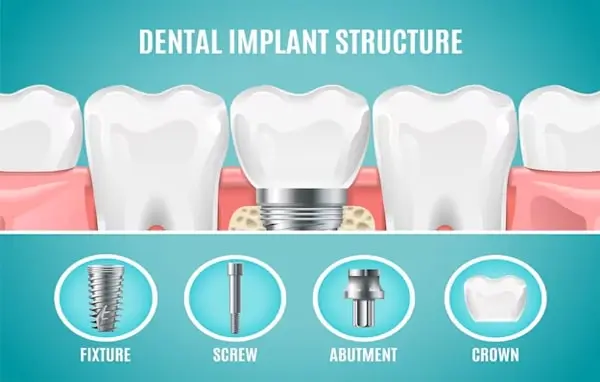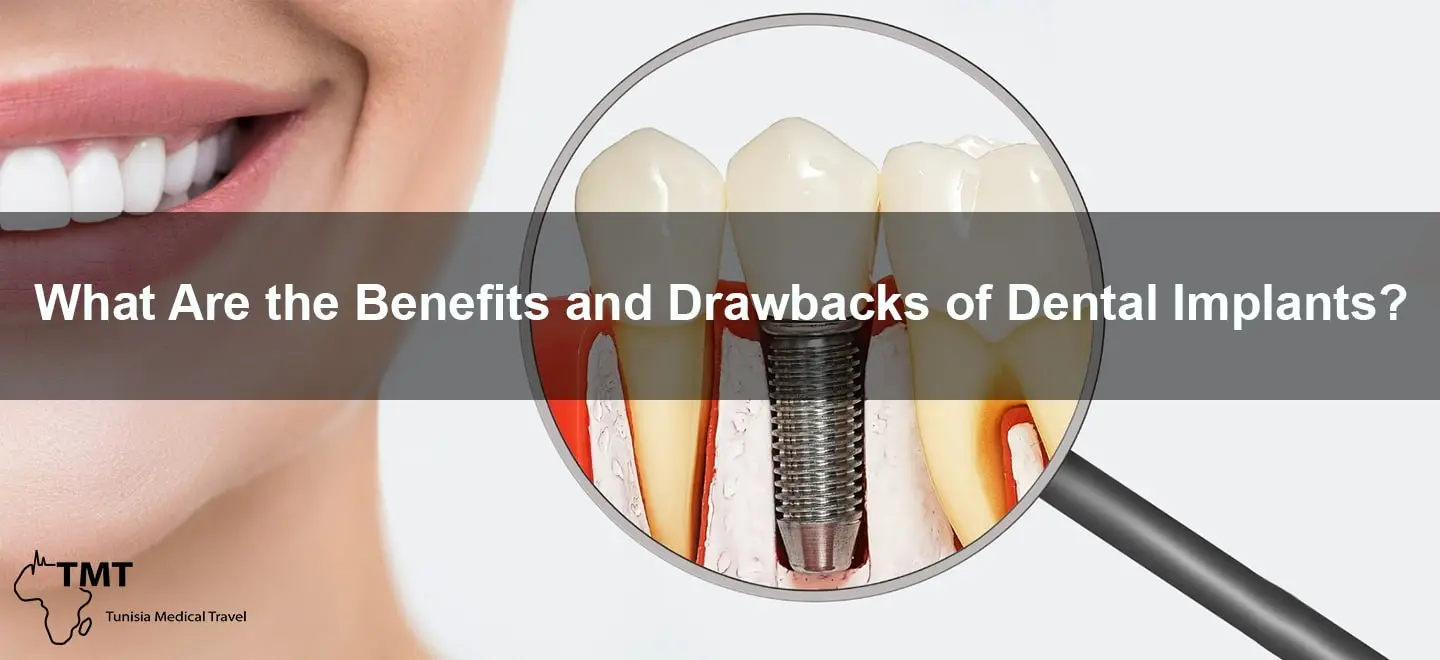What Are the Benefits and Drawbacks of Dental Implants?
What Are the Benefits and Drawbacks of Dental Implants?
dental implants have become a popular option for tooth replacement, offering a range of benefits and some drawbacks. Understanding these can help you make an informed decision if you are considering dental implants.
Benefits of Dental Implants
Durability
Dental implants are renowned for their exceptional durability. Unlike other teeth replacement options that may need to be replaced every few years, dental implants implants are designed to last a lifetime with proper care. Made from biocompatible materials such as titanium, implants dental implants integrate with the jawbone to provide a sturdy and permanent solution. This longevity makes dental implants a cost-effective choice over time, reducing the need for frequent replacements and maintenance. The robust nature of dental and implants means they can withstand the daily wear and tear of chewing and speaking, ensuring reliable performance for many years.
Prevents Bone Loss
One of the significant advantages of dental implants is their ability to prevent bone loss. When you lose a tooth, the jawbone in the empty space deteriorates due to lack of stimulation. Unlike other teeth replacement options, dental implants implants act as artificial roots, providing the necessary stimulation to maintain bone density. This helps preserve the jawbone structure, which is crucial for maintaining facial integrity and overall oral health. By opting for a tooth implant, you can prevent the long-term consequences of bone loss, ensuring a healthier and more stable foundation for your.
Natural Look and Feel
Dental implants provide a natural look and feel that closely mimics real teeth. The crown, which is the visible part of the tooth implant, is custom-made to match the color, shape, and size of your natural teeth. This ensures that your dental implants blend seamlessly with your existing teeth, making it difficult for anyone to tell the difference.The dental implant process involves securely anchoring the implant into the jawbone, much like a natural tooth root. This stability allows the dental implants to function like natural teeth, providing comfort and confidence when smiling, speaking, and eating. Unlike dentures, which can sometimes slip or feel bulky, implants dental offer a secure fit that feels completely natural.
Keeps Adjacent Teeth Stable
Dental implants help maintain the stability of adjacent teeth. When you lose a tooth, the gap can cause neighboring teeth to shift, leading to misalignment and potential bite issues. A tooth implant fills this gap, providing support that keeps adjacent teeth in their correct positions. This stability not only preserves your natural bite but also helps in maintaining overall oral health by preventing further dental complications associated with tooth misalignment.
Restores the Cosmetic Appearance of Your Face
Dental implants play a crucial role in restoring the cosmetic appearance of your face. Missing teeth can cause the face to appear sunken and aged due to the loss of bone structure. Implants provide support to the facial muscles and structure, helping to maintain the natural shape of your face. This not only enhances your overall appearance but also boosts your confidence by giving you a more youthful look.
Behaves Like Natural Teeth When Speaking and Chewing
Dental implants are designed to function just like your natural teeth. This means they allow you to speak and chew without any issues. Unlike dentures, which can slip and cause difficulty with pronunciation, dental implants stay securely in place. This stability ensures that your speech is clear and natural, enhancing your ability to communicate confidently.
When it comes to chewing, implants provide a significant advantage over other tooth replacement options. They mimic the strength and function of natural teeth, allowing you to enjoy a wide variety of foods without discomfort. This is because dental implants are anchored firmly into your jawbone, providing a stable and strong foundation. As a result, you can chew food with the same efficiency and effectiveness as you would with natural teeth. This functionality not only improves your eating experience but also contributes to better digestion and overall health. With dental implants, you don’t have to worry about avoiding certain foods or dealing with the inconvenience of dentures. You can eat, speak, and smile with complete confidence, knowing that your implants will perform just like your natural teeth.
Restores Bite Force
One of the notable benefits of dental implants is their ability to restore bite force. Unlike other tooth replacement options, dental implants are anchored directly into the jawbone, much like natural tooth roots. This integration allows implants to provide a similar level of bite force as natural teeth, enabling you to chew and eat a wide variety of foods without restriction. This restoration of bite force is crucial for maintaining a healthy diet and enjoying your favorite foods without discomfort or worry about damaging the implants dental implants.
Improves Quality of Life
Overall, dental implants can significantly improve your quality of life. They offer a permanent solution to tooth loss, enhance your appearance, improve your oral health, and allow you to enjoy everyday activities without inconvenience.

Benefits of Dental Implants vs. Bridges
When considering tooth replacement options, it’s essential to understand the benefits of dental implants compared to bridges. Both options offer solutions for missing teeth, but there are distinct advantages to choosing implants dental over bridges.
Preservation of Adjacent Teeth
One of the significant advantages of dental implants is that they do not rely on adjacent teeth for support. In contrast, bridges require the filing down of neighboring teeth to accommodate the bridge structure. By opting for implants, you can preserve the integrity of your natural teeth, avoiding unnecessary alteration and potential damage.
Long-Term Durability
Dental implants are renowned for their durability and longevity. Unlike bridges, which may need replacement every 5-15 years, implants can last a lifetime with proper care. This makes them a cost-effective investment in the long run, as they eliminate the need for frequent replacements and associated expenses.
Improved Oral Health
Another benefit of dental implants is their positive impact on oral health. Because they integrate with the jawbone, implants stimulate bone growth and prevent bone loss. This helps maintain the overall structure and health of the jaw, whereas bridges do not provide the same level of stimulation and can contribute to bone deterioration over time.
Enhanced Aesthetics and Functionality
Dental implants offer superior aesthetics and functionality compared to bridges. Implants closely resemble natural teeth in both appearance and feel, providing a seamless and natural-looking smile. They also function like natural teeth, allowing for comfortable chewing and speaking without worrying about slippage or discomfort, which can occur with bridges.
Greater Stability and Comfort
Unlike bridges, which rely on neighboring teeth for support, dental implants are anchored directly into the jawbone. This provides unmatched stability and prevents shifting or movement of the replacement tooth. As a result, implants offer greater comfort and confidence, allowing you to eat, speak, and smile with ease.
Minimal Impact on Surrounding Teeth
Choosing dental implants over bridges minimizes the impact on surrounding teeth. With bridges, adjacent teeth must be altered to accommodate the bridge structure, potentially compromising their health and integrity. Implants, on the other hand, stand independently and do not require any modifications to neighboring teeth, preserving their natural strength and structure.
In summary, while both dental implants and bridges offer solutions for tooth replacement, implants dental implants stand out for their preservation of adjacent teeth, long-term durability, positive impact on oral health, enhanced aesthetics and functionality, greater stability and comfort, and minimal impact on surrounding teeth. Consider these benefits when making your decision to ensure the best possible outcome for your oral health and overall well-being.
Benefits of dental implants over dentures
When considering tooth replacement options, dental implants offer distinct advantages over traditional dentures. Unlike dentures, which are removable prosthetic devices, dental implants are permanently fixed into the jawbone. This permanence eliminates the inconvenience of removing and cleaning dentures daily, providing a more natural and hassle-free experience for individuals with missing teeth. Another significant benefit of dental implants over dentures is their stability and support. Implants are surgically embedded into the jawbone, where they integrate and become a part of the natural dental structure. This stability allows for greater chewing efficiency and prevents issues commonly associated with dentures, such as slippage or discomfort while eating and speaking.
Moreover, dental implants promote better oral health by preserving jawbone density. When teeth are missing, the underlying jawbone can deteriorate over time due to lack of stimulation. However, dental implants mimic the function of natural tooth roots, stimulating the jawbone and preventing bone loss. This not only maintains facial structure and aesthetics but also reduces the risk of further tooth loss. Additionally, dental implants offer a more aesthetically pleasing solution compared to dentures. Implants are custom-designed to match the shape, size, and color of surrounding teeth, ensuring a seamless blend with the natural dentition. This enhances the overall appearance and confidence of individuals who opt for dental implants as their preferred tooth replacement option.
In summary, the benefits of dental implants over dentures include improved stability, longevity, oral health preservation, and aesthetic appeal. These advantages make dental implants a preferred choice for many individuals seeking a permanent and comfortable solution for tooth loss.
Risks and Drawbacks of Dental Implants
While dental implants offer a plethora of benefits, they are not without their share of risks and drawbacks. Firstly, it’s important to recognize that the dental implant process involves surgery, which inherently carries certain risks. These risks include the possibility of infection at the implant site, nerve damage, and potential sinus issues, particularly in cases where implants are placed in the upper jaw. Secondly, the financial aspect can be a significant consideration for many individuals. The cost of dental implants can be relatively high, especially when compared to alternative tooth replacement options such as bridges or dentures. This expense may pose a barrier for some patients, particularly if dental insurance coverage is limited.
Furthermore, not everyone is an ideal candidate for dental implants. Adequate jawbone density is essential to support the implants effectively. Individuals with insufficient bone density may require additional procedures, such as bone grafting, to augment the jawbone before implant placement can occur. Additionally, certain health conditions or lifestyle factors, such as smoking, can impact the success rate of dental implants and may disqualify individuals from being suitable candidates.Moreover, while uncommon, complications can arise during or after the dental implant procedure. These complications may include implant failure, peri-implantitis (inflammation around the implant), or issues with the integration of the implant with the surrounding bone. Such complications may necessitate further interventions or even the removal of the implant in severe cases.
Who’s a Good Fit for Dental Implants?
Determining suitability for dental implants requires careful consideration of several factors. Firstly, individuals who have lost one or more teeth and seek a permanent solution for tooth replacement are potential candidates. However, beyond tooth loss, adequate jawbone density is crucial for the success of dental implants. Good candidates should possess sufficient bone volume to support the implants effectively. Moreover, candidates should be in good overall health, as certain medical conditions or habits like smoking can compromise the healing process after implant surgery. Consulting with a qualified dental professional is essential to assess individual suitability for dental implants accurately. Through a comprehensive evaluation, the dentist can determine whether the patient’s oral health, bone density, and medical history align with the requirements for successful implant placement.

